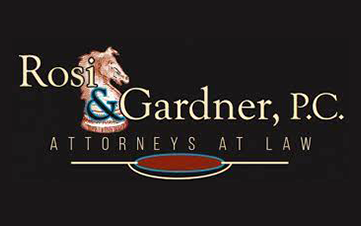For most of us, this January opens with a long and involved ”to do” list. Hopefully one of the key points on your list is to get your estate planning in order. Too often people put off estate planning because they succumb to one of the major legal myths – that estate planning is just for the elderly.
In fact, the best time to begin working on your estate plan is today. That’s especially true if you have small children.
A well-thought out estate plan can help you make sure your children’s future will be in the hands of those you trust most and can help deal with any thorny family issues as well. That’s particularly important for families where there may be disagreement among extended family members about methods of child rearing, education or religion.
But having a young family isn’t the only criteria for getting your estate plan in order. Estate plans should be updated at the time of any major life change including:
• marriage
• divorce
• death of a spouse
• death of parents
Estate plans are also particularly critical for unmarried couples of the same or opposite sex who have property or children together or who may share custody of children they had with other partners. Such couples are in family situations where the law is constantly evolving, so it’s critical to work with an attorney with a strong estate planning background and who is up-to-date on the latest legal decisions involving non-traditional families.
What Does an Estate Plan Include and How Often Do I Need to Update it?
Elements of an estate plan may vary depending on individual situations, but the basics of an estate plan are:
• a will or trust
• a durable power of attorney
• a living will
Once an estate plan is drafted, it should be reviewed every five to seven years, or sooner if there is a major life change such as a divorce or separation.
Can’t I Just Use a Form Will?
There are lots of do-it-yourself will kits and, in larger markets, shops set up to help you do your own legal documents. The problem – those standardized kits rarely cover all the bases to meet your specific needs – and some of the gaps might have a significant adverse impacts on your estate.
What if I Don’t Have a Will?
Your spouse – even if you are separated – gets the first $250,000 of your estate. In the case of a widow or widower, the estate is divided equally among their surviving children. For example:
Mrs. Smith, a widow, passes away and her estate is divided equally among her four children.
Mrs. Smith’s neighbor, Mr. Jones, a widower, passes away and his estate is divided among his three children and the two children of a son who passed away before Mr. Jones. The surviving three children each get 25% of the estate, the two grandchildren each get 12 1/2%.
What About Trusts – Aren’t they Just for the Rich?
Today many people have formal trusts – and not always for the best reasons. Too often trusts are looked upon as a way to avoid probate, but there are other, better reasons to create a trust. Trusts are a great way to handle unusual situations where the estate includes property that requires attention or a business that needs to be run. A trustee that can step in and can be appointed to take charge through the use of a trust.
Consider a trust if you have volatile investments that require regular oversight, unusual investments or a unique business agreement between yourself and another individual involving a business or real estate.
Often placing a family member in a trustee role may not be the best decision. It all depends the reasons for the trust and the expertise of the potential trustee. Often a trust department of a bank or other neutral person may be better suited for the trustee role.
How We Can Help
At Rosi and Gardner we offer a free, one-hour consultation to discuss your estate planning needs. When we meet we’ll talk with you about what you have and what you want to accomplish. We will work with you to begin your first estate plan, update an old one or create a unique plan that takes into consideration your special circumstances. We’ll also give you an estimate of the cost for a new plan. Why not call us today at 231-941-5878? There’s never a better time to get started.
Latest posts by Philip Rosi (see all)
- Title Insurance - February 20, 2012
- Estate Planning Essentials - January 25, 2012
- Family Trust Abuse - December 21, 2011
